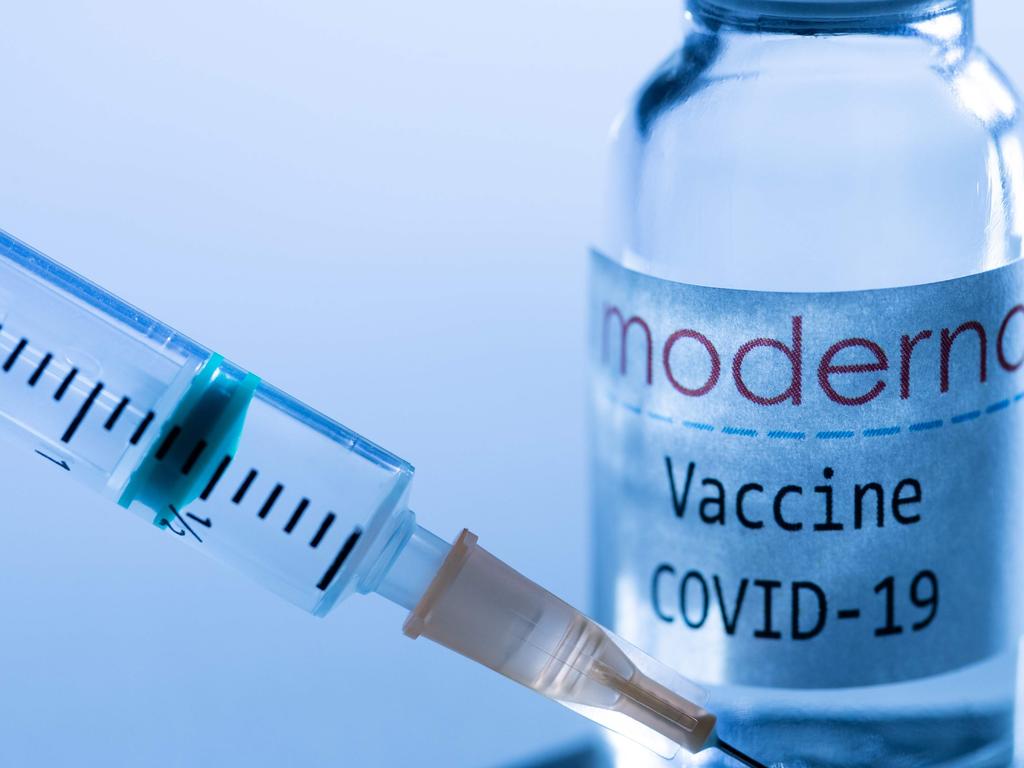Coronavirus crisis: How the Pfizer and Moderna vaccines compare
The COVID fight is heating up with the success of the US-made Moderna and Pfizer vaccines, the latter of which Australia will be among the first to get.
The world is encouraged by the news that late-stage trial results for both the US made Pfizer and Moderna COVID-19 vaccines are promising.
This is how the two vaccines first out of the gate compare.
EFFECTIVENESS
Moderna has reported that its vaccine is 94.5 per cent effective. This compares to Pfizer’s vaccine which reported it was over 90 per cent effective and Russia’s Sputnik vaccine which is reported to be 92 per cent effective at preventing COVID-19.
Side effects were generally short-lived and there were no significant safety concerns in the Moderna trials. Similarly, researchers involved in the Pfizer trials have not seen any safety issues so far.

DISCOVERIES
In looking at 94 cases of COVID-19 in trial participants, Pfizer researchers found after they received two shots of either the vaccine or the placebo, the vaccine was more than 90 per cent effective at seven days after the second dose.
The team said their results suggest protection against the virus is achieved 28 days after the first vaccination.
There are 30,000 people in Moderna’s vaccine trial with around half receiving the real vaccine and the rest a placebo or dummy vaccine. To date 95 people in the trial developed COVID-19 and 90 of them were volunteers who received the placebo vaccine, only five people who received the real vaccine developed the illness. There were 11 cases of severe illness and all of them were in the placebo group.
PARTICIPANTS
Pfizer’s phase 3 clinical trial of BNT162b2 began on July 27 and has enrolled 43,538 participants from six countries to date, 38,955 of whom have received a second dose of the vaccine candidate as of November 8. Approximately 42 per cent of global participants and 30 per cent of American participants have racially and ethnically diverse backgrounds.
Moderna involved more than 30,000 participants at 100 clinical research sites in the United States, which launched on July 27, after results from earlier stage clinical testing indicated that the vaccine candidate is well-tolerated and immunogenic.
SIMILARITIES
Like the Pfizer vaccine Moderna’s vaccine uses a genetic fragment of the virus, an mRNA sequence which tells our body to produce parts of the spike protein present in the coronavirus. This prompts our body to mount an immune response against the virus. These types of vaccines have never been used in humans before but they are faster and cheaper to produce. It is hoped they will also be safer for the patient because they don’t use infectious elements of the virus.
Both vaccines work in racially diverse groups. Moderna’s study involved 20 participants from diverse ethnic groups including people of Hispanic, Latino and Black or African American backgrounds. Pfizer’s study involved over 43,000 people and 42 per cent were from ethnically diverse backgrounds.
And both vaccines appear to protect the elderly with both trials involving people aged over 65.

DIFFERENCES
Moderna received $US955 million from the US government’s Biomedical Advanced Research and Development Authority for research and development of its vaccine, and the United States has committed up to $1.525 billion to buy 100 million doses.
Pfizer said it didn’t receive any government financial support to develop the vaccine but it reached an agreement with the US to supply the vaccine worth nearly $US2 billion.
The US has also agreed to pay up to $US1.53 billion for supply of the Moderna vaccine.
CHALLENGES
Pfizer’s shot needs cold storage until a few days before it is used, but can be kept at refrigerator temperatures for up to five days. This could affect the ability to get it to countries with poorer health facilities or rural areas where there is no/poor electricity. In comparison, Moderna said it’s vaccine is stable at refrigerator temperatures for 30 days and can be kept in freezers over the longer term. It also d doesn’t need the special facilities required for the Pfizer vaccine.
QUANTITY
Based on current projections Pfizer expect to produce globally up to 50 million vaccine doses in 2020 and up to 1.3 billion doses in 2021.
Moderna has already reached agreements to supply 100 million doses to the US and 80 million to the European Union, among others.
CAN WE PRODUCE THE VACCINES HERE?
Australia’s vaccine manufacturer CSL is manufacturing two COVID-19 vaccine candidates but does not have the technology or capacity to make the Pfizer vaccine which is a mRNA vaccine and therefore the Moderna vaccine
Scientists and pharmaceutical manufacturers have called on the government to support the establishment of mRNA vaccine manufacturing technology here in Australia.
Pfizer said it expects to produce up to 1.3 billion doses of the vaccine in 2021.
DELIVERY DATE
If further review shows their shots are safe, Moderna and Pfizer are expected to seek emergency-use authorisation from the US Food and Drug Administration. Moderna said it could seek clearance from regulators within weeks, while Pfizer could apply for an authorisation in the US this month.
In Australia, an agreement with Pfizer/BioNTech will deliver 50 million doses from overseas, likely to arrive in early 2021 if they prove safe and effective.
Unlike the US government Australia does not have a direct deal to purchase the Moderna vaccine. However, we have signed up to the Covax initiate, an international agreement for vaccine supply which will eventually give us access to this vaccine. Australia has direct deals to purchase four COVID-19 vaccines including one with Pfizer, Oxford/AstraZeneca, the University of Queensland and Novavax.
WILL THE VACCINES STOP THE VIRUS?
This is not yet clear. The trials show the vaccines prevent COVID-19 – the illness caused by the virus. CSIRO’s Professor Rob Grenfell says this is different to preventing the virus. The virus may still be spread from an infected person to others via droplets or aerosol even if they are vaccinated but not made sick by the virus. This means even though we have a vaccine we may still need to practice social distancing, wear masks and wash our hands. Scientists are testing delivering the vaccines via a nasal spray in the hope this may prevent not just COVID-19 but kill off the virus itself.
MORE NEWS
Best uni degrees to get you a job




